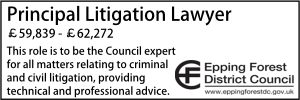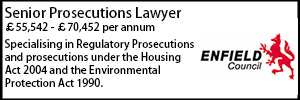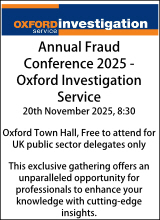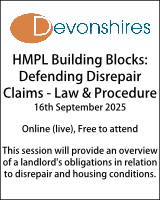Settling cases and interested parties in judicial review
- Details
A recent decision of Fordham J highlights some useful practice points about settling judicial review cases, writes Charlotte Tosti.
R (Kirklees Council) v Secretary of State for Transport [2023] EWHC 2459 (Admin).
Agreeing on a final order
Where parties agree on a final order which includes a substantive one (such as a quashing order or a declaration), the Court can make that order on the papers without a hearing. However, the Court must be “satisfied that the order should be made” (PD54A para 16.2; PD54D para 4.50).
In order to do this, the parties must file:
- Three copies of the proposed agreed order;
- A short agreed statement of the matters relied on as justifying the order; and
- Any authorities or statutory provisions relied on.
Even if the outcome is not agreed, the parties may invite a judge to determine the claim and make the appropriate substantive order disposing of the proceedings. This can be done without the need for a hearing (CPR r.54.18; PD54D para 4.48; JR Guide [1] para 11.4.1).
Orders granting a remedy
Orders which grant a remedy, such as a quashing order or declaration, must always be made by a judge. This is the case even if all parties are in agreement, reflecting the nature of judicial powers within the public law supervisory jurisdiction and the need for the court to be satisfied the order can properly be made.
Where there is agreement over costs, this may not strictly require the court to make an order (see Kirklees paragraph 6(ii) and JR guide para 25.5.51). Agreed orders which relate only to costs do not require an agreed statement of justification (PD54A para 16.4; PD54D para 4.52).
Interested parties and their role in settlement
An interested party is a person that is directly affected by a claim (CPR r.51.1(f) and 54.23; JR Guide para 3.2.3.1.)
Once served with proceedings, a person directly affected by the claim becomes a “party” and gains rights. At this point, they can participate in proceedings if they wish. But case law indicates they may be subject to the duty of candour, especially where their interests are closely connected with the parties (JR Guide para 7.5.1 and e.g. R (Midcounties Co-operative Ltd) v Forest of Dean District Council [2015] EWHC 1251 (Admin) para 150; Belize Alliance of Conservation NGOs v Department of the Environment [2004] UKPC 6 para 87). While the point has not yet been definitively determined, there are good reasons why interested parties, especially those who are taking an active role in proceedings and / or hold information which would assist the court, should be subject to the duty of candour.
An interested party can appeal an adverse decision even if the parties do not. This famously happened in the Heathrow Third Runway litigation R (Friends of the Earth Ltd) v Heathrow Airport Ltd [2020] UKSC 52, when Heathrow Airport appealed but the Secretary of State did not. An interested party can also be the subject of costs orders.
If parties seek to agree a draft order and statement, this must be signed by all parties, including interested parties: Kirklees para 6(iii). In this case, three out of four parties had agreed everything, including the quantum of costs. However, one of the interested parties had not signed it. An earlier email from that interested party to the court had said it “disagreed with the claim”. It criticised some of the claim documents as “false” (para 5).
Fordham J directed a brief oral hearing to determine the claim as the matter was not entirely agreed. He gave directions for the interested party to file an acknowledgement of service. The interested party then made various requests and submissions in inter pares correspondence. It made no written submissions nor did it respond to a request as to whether it would attend the hearing. Moreover, it did not attend the hearing.
The court then made the agreed draft order and gave a provisional view that costs of the hearing should be paid by the IP. Due to the parties not giving a clear indication of the potential for costs, the court gave the IP time to respond. Despite the response from the IP, the court nonetheless ordered costs against them.
Charlotte Tosti is a Researcher and Paralegal to the Administrative and Public Law Team at Landmark Chambers.
Katharine Elliot appeared for the defendant Secretary of State in Kirklees.
Trust Solicitor (Public & Healthcare Law)
Trust Solicitor (Employment & Contract Law)
Locums
Poll


























